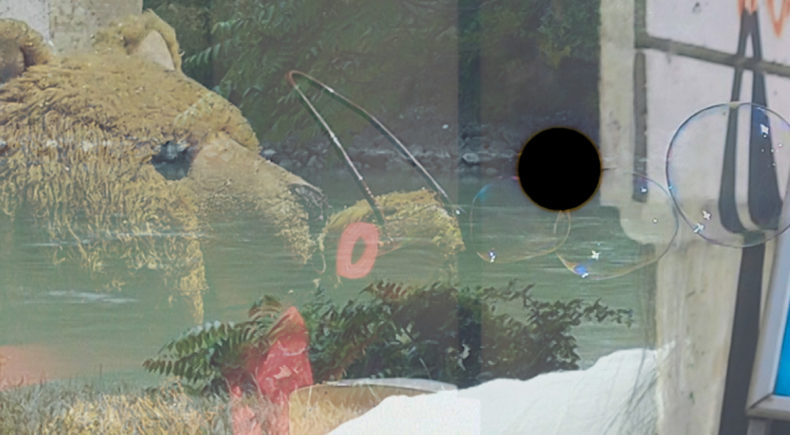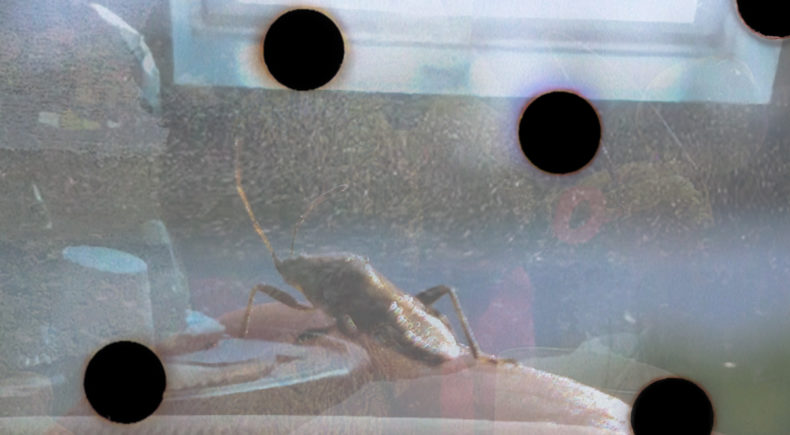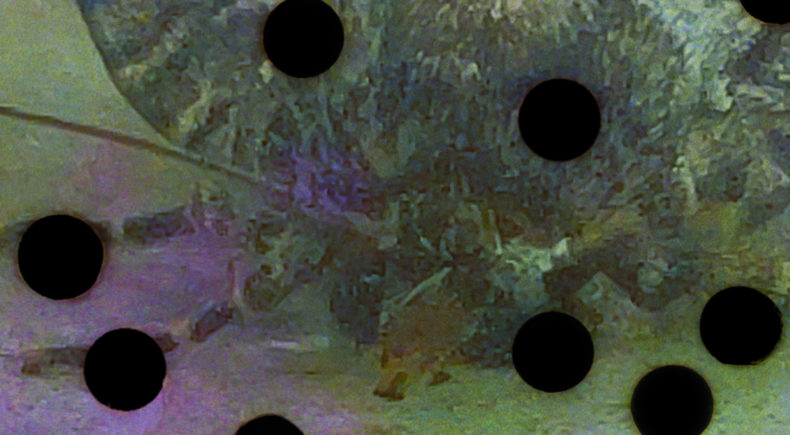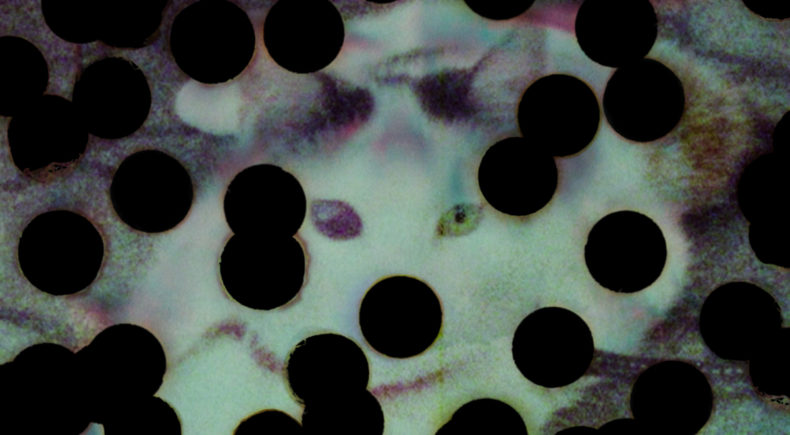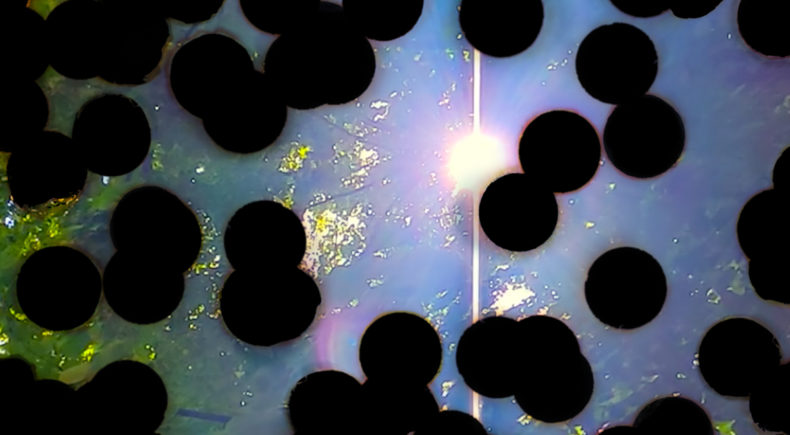Floating Flies
Director: Victoria Halper
Austria, Croatia, Germany, 2022, 8 min
Shooting Format:Super 8, Digital HD
Festival Year:2023
Category:Experimental
Genres:Drama, Horror, Personal
Cast:Victoria Halper
Crew:Writer: Victoria Halper. Producer: Victoria Halper. Additional Sound Design: Kai Krösche; Conceptual Dramaturgy: Kai Krösche; Developmental Dramaturgy: Tamara Raunjak
Email:darumkollektiv@gmail.com
Synopsis
A short film exploring the permanent and uncontrollable changes to the eye that aging brings with it through the perspective of a young woman. The desire for clear vision is challenged by semi-transparent and opaque untouchable black objects floating in one's eye, known as mouches volantes. An autobiographical experimentation on film and digital material featuring analog shadows of specks of dust and mould inside the camera lens, overclocked digital static and ever increasing ominous black holes of nothingness.
About the director
VICTORIA HALPER is a Vienna-based Canadian/Austrian director, performer and video artist. Along with Kai Krösche she heads the artist label DARUM, whose research-based work oscillates between film, installation, digital art and immersive contemporary performance - receiving the renowned NESTROY Theatre Award (AUT) in 2023 for "Homesick". This is her second experimental film to be screened at the Brooklyn Film Festival.
Filmmaker's note
A shadowy dot appears out of nowhere. I blink to get it away, and when it doesn't, I think to myself that perhaps something is stuck to the contact lens. I take it out and clean it; it's gone—for now. Day after day, it pops into sight: a little fleck that looks like a comet. I assume, like a hangover, it'll go away by itself. Denial. It doesn't go away. Google suggests that this dot could be something serious, potentially permanent. A visit to the doctor confirms that the speck is a mouche volante, an eye floater, and it's there to stay and could be joined by more sometime in the future. Walking back home after the appointment, I can't help but observe the people passing by: do they have a translucent black spot floating in their line of vision? When they look at me, is their eyesight clean and clear like mine used to be? Or is it full of black static? Static, grain, scratches are also found in videos, pictures, and film—why do we accept the look of texture in film (sometimes even embracing it as vintage and authentic) but not in our eyesight?
All of these questions set off a chain of thoughts that inspired me to research the topic of mouches volantes and the desire to explore my thoughts in a short experimental film.
Mouches volantes (French literally 'flying flies') are known as 'floaters' in English. The common type of floater, present in most people's eyes, is a result of degenerative changes of the vitreous. They cast shadows on the retina or refract light as it passes through, appearing as spots, threads, or cobweb-like fragments. They leisurely float along with the movements of my eyes, creating a captivating dance. While they are usually harmless and don't require treatment, severe cases may call for surgeries like vitrectomy or laser vitreolysis. (Wikipedia: https://en.wikipedia.org/wiki/Floater)
During the initial stages of developing "Floating Flies," I sought inspiration from artworks that explore the concept of holes. I revisited the works of Yayoi Kusama, a Japanese artist who is world-renowned for her polka dots, which have a similarity to holes. I noticed parallels in some of her lesser-known works to what I was thinking about at the time and looking for: her collages from the 1980s. Made during a time of mourning and psychological trauma, these works reminded me of the beauty and pain of aging—around this time, she is quoted saying: "If it were not for art, I would have killed myself a long time ago." Similar to the mouches volantes casting their shadows in my vision, the red dots in Kusama's "Bird" (1980) become an integral part of the aesthetic composition, creating a fresh perspective, a new vision. Rather than aggressively obstructing the main focus, the dots contribute to a new visual experience that embraces imperfections. Inspired by this notion, I delve deeper into the idea of embracing imperfections and weaving them into a "new" vision that incorporates the presence of dots in my film, "Floating Flies".



